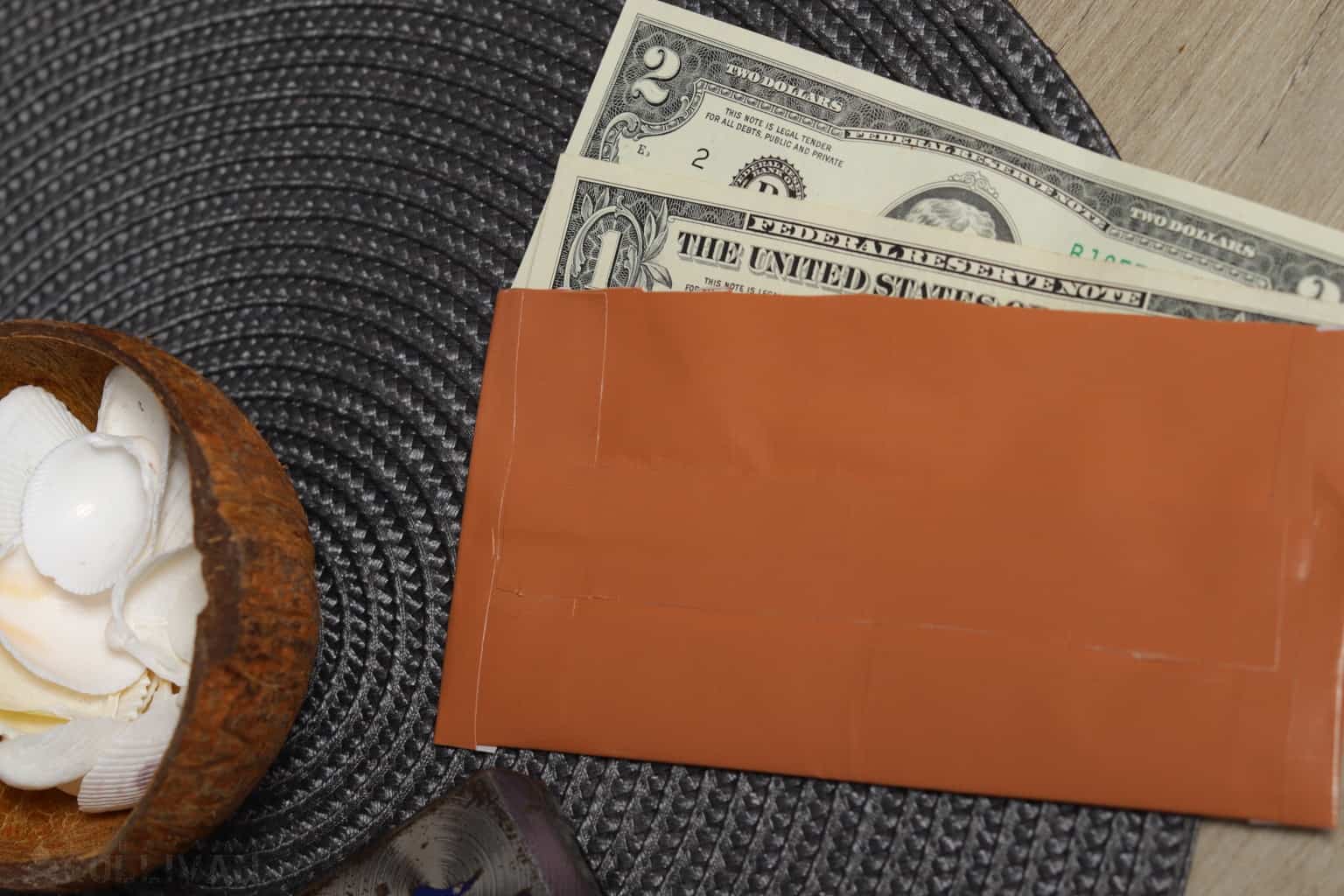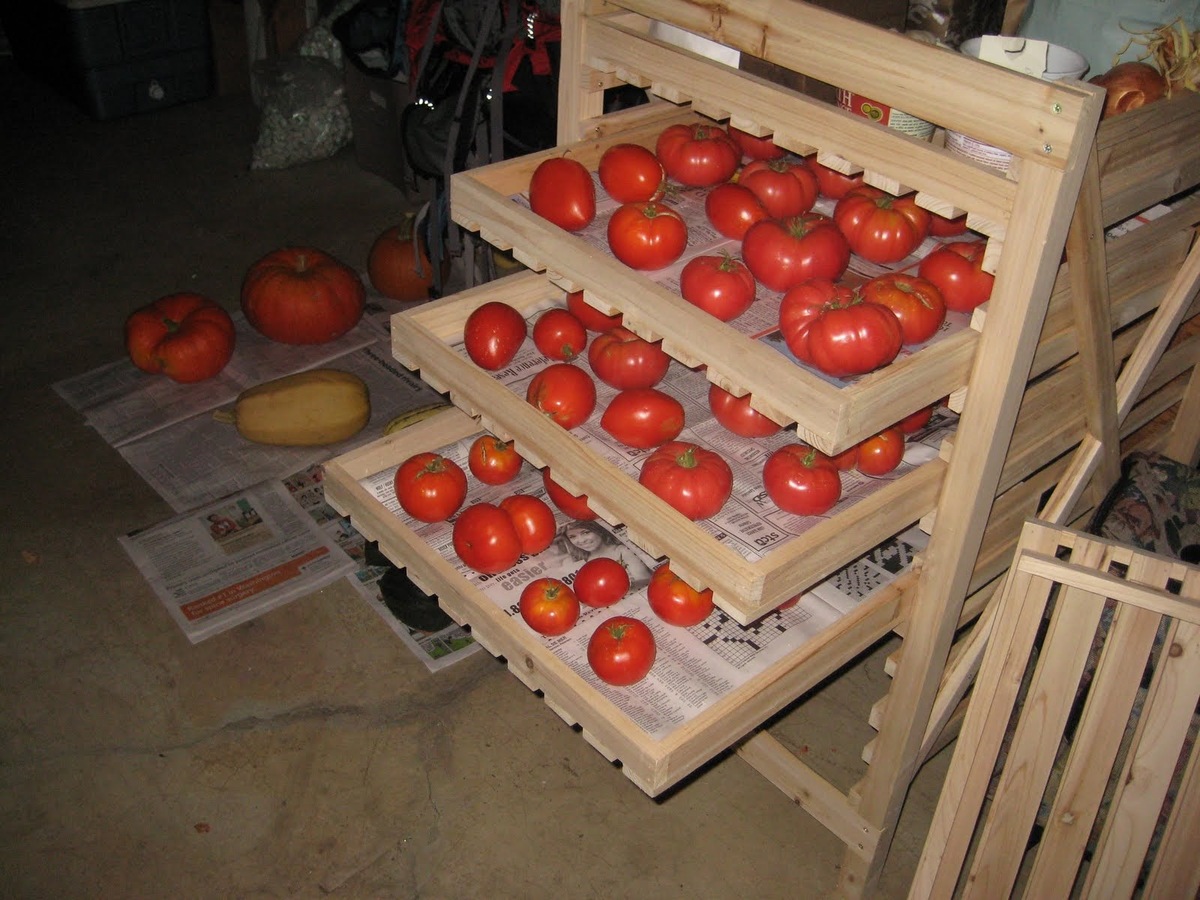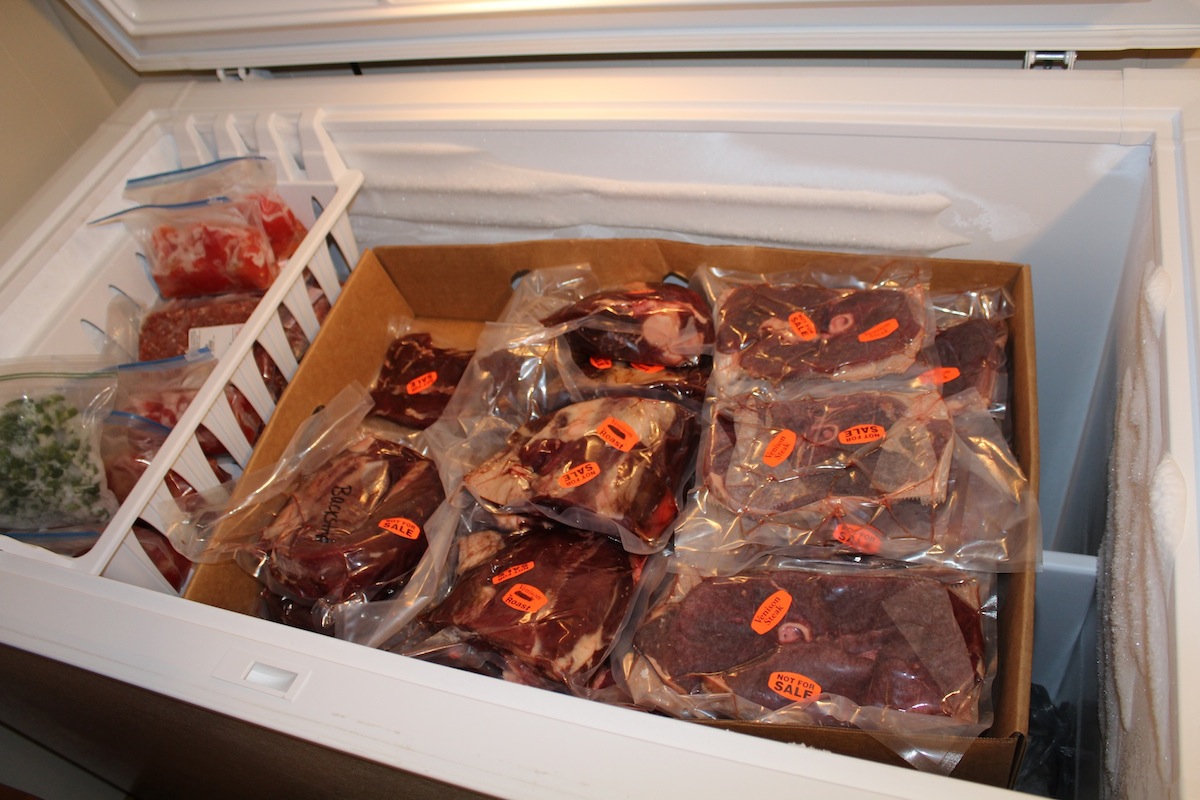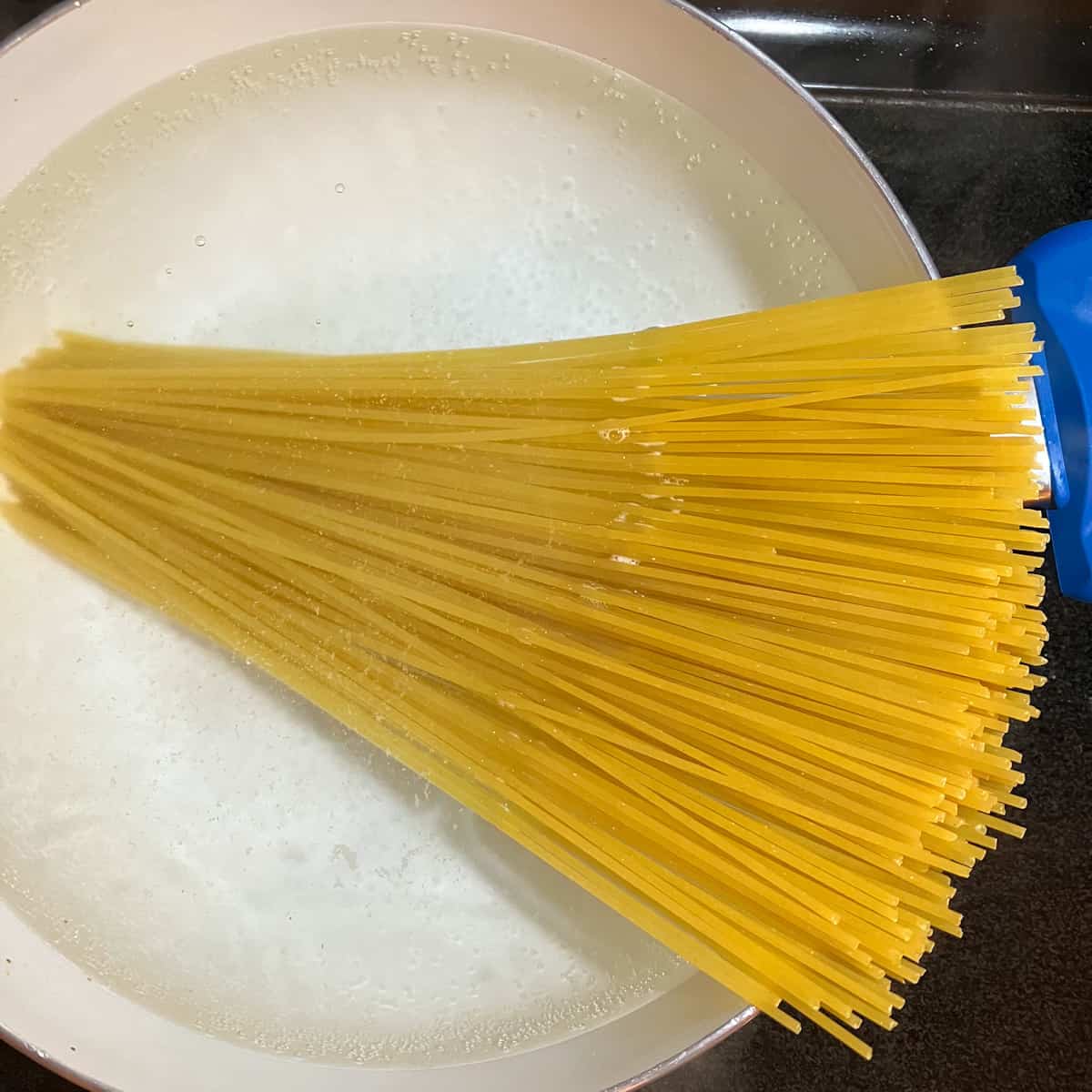

Articles
How To Store Cash Long-Term
Modified: February 23, 2024
Learn effective ways to store cash for the long-term with our informative articles. Explore expert tips and strategies to protect your money and maximize its value.
(Many of the links in this article redirect to a specific reviewed product. Your purchase of these products through affiliate links helps to generate commission for Storables.com, at no extra cost. Learn more)
Introduction
When it comes to financial planning, it’s important to consider various aspects, including long-term cash storage. While many individuals focus on investments and savings accounts, having a secure place to store physical cash is equally crucial. Whether you are keeping emergency funds, savings for a specific goal, or cash for personal or business use, effective long-term cash storage helps preserve its value and ensures easy accessibility when needed.
In this article, we will explore the importance of long-term cash storage and provide valuable tips on how to properly store your cash to maintain its value and protect it from theft or damage. We will also discuss alternatives to traditional cash storage methods and highlight the significance of regular monitoring and maintenance.
In today’s ever-changing financial landscape, the diversification of assets is crucial. While digital payments and online banking are prevalent, having physical cash on hand can be advantageous in various situations: during emergencies, power outages, natural disasters, or when electronic payment systems are down.
Moreover, storing cash long-term can offer a level of financial security since cash is not subject to fluctuations in the stock market or interest rate changes. It provides a tangible asset that you can access quickly and easily, without relying on third-party institutions or systems.
However, merely keeping cash under your mattress or in a random drawer is not a viable long-term solution. It is essential to consider several factors such as security, protection against theft or damage, documentation, and regular monitoring.
In the following sections, we will delve into each of these areas and provide practical advice to help you effectively store your cash for the long term.
Key Takeaways:
- Secure long-term cash storage is crucial for financial stability, emergency preparedness, and privacy. Consider factors like security, accessibility, and documentation to protect and preserve your cash reserves.
- Explore alternative options to physical cash storage, such as online banking, investments, and precious metals. Diversifying your financial holdings can offer convenience, potential growth, and increased security.
Read more: How To Store Cash Long Term
Importance of Long-Term Cash Storage
Long-term cash storage plays a vital role in financial planning and security. While digital transactions are becoming increasingly popular, having physical cash on hand offers several advantages and a sense of financial stability.
One of the primary reasons for storing cash long-term is to have access to funds during emergencies. In situations where power outages or technical issues disrupt electronic payment systems, having cash readily available can be a lifesaver. It allows you to purchase essential items, pay for services, or cover unexpected expenses when other payment methods are inaccessible.
In addition, storing cash provides a safety net in times of economic instability. During recessions or times of financial crisis, bank closures, or limited access to funds, having physical cash can provide a sense of relief and financial security. It serves as a backup when other assets or investment options may not be readily available.
Another benefit of long-term cash storage is the ability to take advantage of potential opportunities. With cash readily accessible, you can seize favorable investment prospects or make strategic purchases when prices are low. Having cash on hand allows you to act quickly and take advantage of time-sensitive deals or investments.
Cash is also valuable for personal and business purposes. It can be used for day-to-day expenses, as well as for special occasions or unexpected situations. Having cash readily available allows you to make purchases without relying solely on credit cards or digital payment methods. This can be beneficial to individuals who prefer to manage their finances using cash or for businesses that encounter customers who prefer to pay with cash.
Furthermore, storing cash long-term can provide a sense of privacy and control over your finances. Unlike digital transactions, cash transactions leave no digital trail, making them more private and less susceptible to hacking or identity theft. This can be particularly important for individuals who prioritize maintaining their financial information’s confidentiality or who are concerned about cyber threats.
Overall, long-term cash storage offers flexibility, accessibility, and security in various financial situations. It serves as a tangible asset that you can rely on when digital systems are not available or as a backup in times of economic uncertainty. By effectively storing your cash, you can ensure its value is preserved and have peace of mind knowing that you have a reliable financial resource at your disposal.
Factors to Consider when Storing Cash
When it comes to storing cash for the long term, there are several important factors to consider. Taking these factors into account will help ensure the security and preservation of your cash, making it readily accessible when needed.
1. Security: The security of your cash should be a top priority. Consider the level of protection your storage method provides against theft, unauthorized access, and physical damage. Look for storage options that have robust security features such as locks, tamper-proof materials, and fire-resistant properties.
2. Privacy: Maintaining privacy is crucial when it comes to cash storage. You may want to consider storage solutions that offer discretion and keep your financial information confidential. This is particularly important if you live in a shared space or have frequent visitors.
3. Accessibility: Your cash should be easily accessible when you need it. Consider how quickly you can retrieve the money stored and whether the storage container allows for easy and convenient access. Avoid storage methods that require extensive effort or significant time to retrieve funds in urgent situations.
4. Portability: Think about whether you may need to transport your cash. If you anticipate the need to move or travel with your cash, choose a storage method that is portable and designed to protect the cash during transit.
5. Durability: Cash can be easily damaged by harsh environmental conditions such as moisture, heat, or pests. Look for storage options that provide protection against these elements and ensure the durability of your cash over time.
6. Size and Capacity: Evaluate the amount of cash you plan to store and choose a storage method that is appropriately sized to accommodate your needs. Consider whether you may need to expand your storage capacity in the future.
7. Cost: Cost is another important factor to consider. Balance the security features and storage capabilities with your budget. Look for affordable options that meet your storage requirements without compromising on the safety and protection of your cash.
8. Discreetness: Consider whether you want your cash storage to be discreet or inconspicuous. Some storage options may allow you to hide the fact that you have cash stored, providing an extra layer of security.
By carefully considering these factors, you can make an informed decision on the best cash storage method that suits your specific needs and ensures the safety and accessibility of your funds in the long term.
Choosing the Right Storage Container
When it comes to storing cash for the long term, selecting the right storage container is crucial. The container you choose should provide optimal security, protection, and accessibility for your cash. Here are some key factors to consider when selecting the right storage container:
1. Material: Look for containers made of durable materials such as metal or high-quality plastic. These materials provide better protection against physical damage and tampering.
2. Locking Mechanism: Ensure that the storage container has a reliable and secure locking mechanism. Depending on your needs and preferences, you can opt for containers with key locks, combination locks, or digital locks.
3. Size and Capacity: Consider the amount of cash you plan to store and choose a container that provides sufficient size and capacity. It should comfortably accommodate your cash without overcrowding, allowing for easy organization and retrieval.
4. Fire Resistance: Fire-resistant containers are highly recommended to protect your cash from damage in case of a fire incident. Look for containers that have been tested and certified for fire resistance.
5. Waterproof and Moisture Resistance: Moisture can cause significant damage to cash. Ensure that the storage container is waterproof or moisture-resistant to protect your cash from humidity, spills, or accidental exposure to liquids.
6. Concealment: If you prefer to keep your cash storage discreet, consider containers that offer concealment features. Some containers can be disguised as everyday objects, such as books or small household items, making them less conspicuous.
7. Portability: Depending on your needs, you may want to choose a storage container that is portable and easy to transport. This can be particularly important if you plan to move or travel with your cash.
8. Reviews and Ratings: Before purchasing a storage container, read reviews and ratings from other customers. Their experiences can provide valuable insights into the quality, durability, and functionality of the container.
9. Cost: Consider your budget when selecting a storage container. While it is important to invest in a high-quality container, ensure that it aligns with your financial capabilities.
By considering these factors, you can choose a storage container that meets your specific needs, providing reliable security, protection, and accessibility for your long-term cash storage.
Safe Locations for Cash Storage
When it comes to storing cash, choosing the right location is just as important as selecting the right storage container. Here are some safe locations to consider for your cash storage:
1. Home Safe or Fireproof Safe: Investing in a home safe or fireproof safe is a popular and secure option for cash storage. These safes are designed to protect against theft, fire, and other potential hazards. Install the safe in a discreet and secure location in your home, such as a locked closet or a hidden area.
2. Bank Safety Deposit Box: Renting a safety deposit box at a bank is another reliable option for cash storage. Banks provide high levels of security, including 24/7 surveillance and restricted access. However, keep in mind that accessing your cash may require additional time and could be subject to bank hours.
3. Secret Compartments: If you prefer to keep your cash storage discreet, consider creating secret compartments in your home. These can be behind false walls, within furniture, or in other inconspicuous locations. Ensure that the compartment is adequately secured and not easily identifiable.
4. Off-Site Storage Facility: Renting a secure off-site storage facility can provide an extra layer of protection for your cash. These facilities offer advanced security measures and controlled access, ensuring the safety of your cash. Research and choose a reputable storage facility with a track record of reliability.
5. Portable Lockbox: If you frequently need your cash on hand or anticipate the need to transport it, a portable lockbox can be a convenient option. Look for lockboxes made of sturdy materials and with reliable locks to ensure the security of your cash while on the move.
6. Hidden Locations: Consider hiding small amounts of cash in various locations throughout your home. Be creative and choose spots that are not obvious to potential intruders. However, make sure to keep a record of these hiding spots to avoid forgetting where you have stored your cash.
7. Diversion Safes: Diversion safes are everyday objects that are designed to look and function like ordinary items but have hidden compartments for storage. Popular examples include soda cans, books, or household items. These safes provide an added layer of deception, making it less likely for potential thieves to identify them as a storage container for cash.
8. Electronic Security Systems: Install an electronic security system, including alarms, cameras, and motion sensors, in your home. These systems can act as deterrents to potential thieves and provide additional peace of mind when it comes to storing your cash.
Remember, regardless of the location you choose, always prioritize the security and accessibility of your cash storage. Regularly evaluate and update your storage methods to ensure that they continue to meet your needs and maintain the safety and integrity of your cash.
Consider storing cash in a secure, fireproof safe or a safe deposit box at a bank. Keep the cash in a sealed, waterproof container to protect it from damage. Rotate the bills periodically to prevent deterioration.
Read more: How To Store Cash At Home
Protecting Cash from Theft or Damage
Ensuring the security and protection of your cash is essential to maintaining its value and accessibility over the long term. Here are some practical measures to protect your cash from theft or damage:
1. Use a Secure Storage Container: Store your cash in a secure storage container, such as a home safe or fireproof safe. Ensure that the container has reliable locks and is made of durable materials that can withstand tampering or physical damage.
2. Keep Cash Concealed: Avoid advertising or visibly displaying large amounts of cash. Keep your cash discreetly hidden in the storage container or other secure locations. This helps to minimize the risk of attracting attention from potential thieves.
3. Limit Access: Only share knowledge of your cash storage location with trusted individuals. Restrict access to your storage container and ensure that only you or authorized individuals have access to it. This reduces the likelihood of theft or unauthorized tampering.
4. Be Vigilant: Stay aware of your surroundings and be cautious when discussing or handling cash in public. Avoid making unnecessary or conspicuous displays of cash, as this can attract unwanted attention from potential thieves.
5. Install Security Systems: Consider installing security systems such as alarms, cameras, and motion sensors in your home or the area where you store your cash. These systems act as deterrents and provide an added layer of protection against theft.
6. Insure Your Cash: Investigate the possibility of insuring your cash against theft, loss, or damage. Consult with insurance professionals to explore specific policies that can provide coverage in case of unfortunate events.
7. Regularly Monitor and Audit: Periodically check your cash storage container to ensure its integrity and confirm that the cash is intact. Create a system for regular audits to keep track of the stored cash and identify any discrepancies as early as possible.
8. Consider Alternative Storage Locations: If you have concerns about the security of your own premises, you may opt to store your cash in a bank safety deposit box or a secure off-site storage facility. These options provide an extra layer of protection and reduce the risk of theft or damage.
9. Protect Cash from Environmental Damage: Take precautions to protect your cash from environmental factors such as moisture, humidity, and pests. Consider using moisture-absorbing packets, sealing your storage container properly, or opting for specialized storage solutions that offer protection against these elements.
10. Document and Keep Records: Establish a system for documenting the cash you store, including denominations, dates, and any specific markings. Keep records of deposits or withdrawals, which can help you track and account for your cash over time.
By implementing these measures, you can significantly reduce the risk of theft or damage to your cash. Stay proactive and mindful in protecting your cash to ensure its long-term integrity and accessibility.
Implementing a Documentation System
Having a proper documentation system is essential when it comes to storing cash long-term. A documentation system helps you keep track of your cash, monitor changes or discrepancies, and provide a clear record of your financial transactions. Here are some key steps to implement an effective documentation system:
1. Establish a Cash Log: Create a cash log to record all incoming and outgoing cash transactions. Include details such as date, amount, source or destination, purpose, and any additional notes. This log serves as a comprehensive record of your cash activities.
2. Use Receipts: Whenever possible, obtain and keep receipts for cash transactions. Receipts serve as physical evidence of the transaction and can be used for future reference or as proof of payment.
3. Organize and Label: Maintain a well-organized system for storing your cash and related documents. Create labels for different categories or types of cash transactions, making it easy to locate specific records when needed. Use folders, envelopes, or digital folders for efficient organization.
4. Regularly Update the Documentation: Consistently update your cash log and documentation whenever there are changes in your cash storage or transactions. Make it a habit to record transactions immediately to ensure accuracy and avoid missing any important details.
5. Store Documentation Separately: Keep a duplicate set of your cash log and documentation in a separate, secure location. This provides an additional layer of protection and serves as a backup in case the original documents are lost, damaged, or compromised.
6. Implement Checks and Balances: Periodically reconcile your cash log with the actual cash stored to identify any discrepancies. Conduct regular audits to ensure that the documented cash matches the physical cash on hand.
7. Include Supporting Documents: Attach supporting documents such as bank statements, receipts, or invoices to your cash log when applicable. This helps provide a complete picture of your cash transactions and serves as evidence in case of any disputes or discrepancies.
8. Review and Evaluate: Take the time to review your documentation periodically and evaluate its effectiveness. Look for areas of improvement, such as streamlining processes, updating categories or labels, or implementing additional security measures.
9. Secure Digital Documentation: If you choose to store your documentation digitally, ensure that you have proper security measures in place. Use strong passwords, encryption, and backup systems to protect your digital records from unauthorized access or loss.
10. Seek Professional Advice: When it comes to complex financial matters or larger cash amounts, consider consulting with a financial advisor or accountant. They can provide guidance on creating and maintaining an effective documentation system that aligns with your specific needs and legal requirements.
By implementing a comprehensive documentation system, you can maintain accurate records of your cash transactions, track changes over time, and have a clear overview of your financial standing. A reliable documentation system provides peace of mind and facilitates easy monitoring and management of your long-term cash storage.
Regular Monitoring and Maintenance of Cash
Regular monitoring and maintenance of your cash storage is crucial to ensure the security, integrity, and accessibility of your funds over the long term. Here are some key steps to follow for effective monitoring and maintenance:
1. Regular Inventory Checks: Conduct regular inventory checks of your cash storage to verify the amount of cash on hand. Compare the physical cash against your documented records to identify any discrepancies and take appropriate action to resolve them.
2. Track Cash Flow: Keep track of the inflow and outflow of cash. Monitor how your cash is being used or replenished and update your records accordingly. This helps you maintain an accurate representation of your cash position and identify any inconsistencies or unexpected changes.
3. Evaluate Security Measures: Regularly assess the security measures in place for your cash storage. This includes reviewing the integrity of locks, examining the condition of fireproof safes or storage containers, and ensuring that any electronic security systems are functioning correctly. Make any necessary adjustments or upgrades to enhance the security of your cash.
4. Inspect for Damage: Periodically inspect your cash for any signs of damage, such as torn or worn banknotes. Damaged cash may be rejected by financial institutions or affect the value of your funds. Replace damaged banknotes with new ones to maintain the integrity of your cash reserves.
5. Address Environmental Risks: Assess the environment where your cash is stored for any potential risks. Protect your cash from exposure to excessive moisture, heat, sunlight, or pests that could damage your funds. Consider using moisture-absorbing packets or specialized storage solutions to minimize these risks.
6. Update Documentation: Regularly update your cash log and documentation system to reflect any changes or new transactions. This should be done promptly to maintain the accuracy and completeness of your records. Update any supporting documents, such as receipts or bank statements, as well.
7. Review Security Protocols: Review your security protocols and procedures periodically. This includes access control measures, password management, and any additional security measures you have in place. Update or reinforce these protocols as necessary to address any identified vulnerabilities.
8. Train and Educate: Educate yourself and any authorized individuals on the proper handling and storage of cash. Provide training on security practices, including identifying counterfeit banknotes and recognizing potential threats. This helps ensure that everyone involved in the handling of cash is knowledgeable and proactive in maintaining its security.
9. Periodic Reassessments: Conduct periodic reassessments of your cash storage methods, storage locations, and overall security measures. Stay informed about emerging security technologies or industry best practices and update your approach accordingly.
10. Seek Professional Input: Consider consulting with a professional security expert or financial advisor for guidance on enhancing the security and maintenance of your cash storage. They can provide valuable insights and recommendations based on their expertise and help you implement best practices.
By following these monitoring and maintenance measures, you can ensure the ongoing security and accessibility of your cash reserves. Regular attention to the state of your funds and the integrity of your storage methods will give you confidence in the long-term preservation of your financial resources.
Alternatives to Cash Storage
While storing physical cash can be beneficial in certain situations, there are also alternative options available for managing and preserving your financial resources. Here are some alternatives to consider:
1. Online Banking and Digital Payments: With the advancement of technology, online banking and digital payment systems have become increasingly popular. These platforms allow for secure and convenient transactions without the need for physical cash. By utilizing online banking services and digital wallets, you can store your funds electronically and access them anytime, anywhere.
2. Savings and Checking Accounts: Utilizing traditional savings and checking accounts offers a secure and regulated way to store your funds. These accounts provide easy access to your money, and you have the potential to earn interest on your savings. Banks offer various account options, including accounts specifically designed for long-term savings goals.
3. Investments: Investing your money can potentially yield higher returns compared to keeping it as cash. By diversifying your investment portfolio, you can grow your wealth over the long term. Options include stocks, bonds, real estate, mutual funds, or exchange-traded funds (ETFs). It’s important to conduct thorough research or seek advice from a financial advisor before venturing into investments.
4. Precious Metals: Investing in precious metals such as gold, silver, or platinum can offer an alternative to storing cash. Precious metals have intrinsic value and serve as a hedge against inflation. You can store them in a secure vault or deposit them in a reputable storage facility.
5. Cryptocurrencies: Cryptocurrencies like Bitcoin, Ethereum, or Litecoin have gained popularity as a decentralized digital currency. These digital assets can be securely stored in digital wallets and can provide an alternative form of storing value. However, cryptocurrencies come with their own set of risks, including volatility and security concerns.
6. Money Market Accounts: Money market accounts combine the features of a savings account and the flexibility of a checking account. They typically offer higher interest rates compared to regular savings accounts and provide easy accessibility to funds. Money market accounts are backed by government securities and are considered low-risk options.
7. Prepaid Debit Cards: Prepaid debit cards allow you to load funds onto a card, which can be used for purchases and withdrawals. These cards provide convenience and security, as they are not directly linked to your bank account. They can be a viable alternative if you prefer not to carry large amounts of cash or if you want to track your spending more effectively.
8. Trusts or Money Management Services: Setting up a trust or utilizing the services of a money management professional can be an option for those with significant assets. These services provide professional guidance and management of your financial resources, ensuring that they are invested and protected according to your specific goals and risk tolerance.
Considering these alternatives can help you explore different options beyond storing cash. It’s important to evaluate your financial goals, risk tolerance, and individual circumstances before choosing the most suitable alternative for your needs.
Remember, no single approach is perfect for everyone, and it’s often beneficial to diversify your financial holdings for security and potential growth. It’s recommended to consult with a financial advisor who can provide customized advice based on your specific financial situation and goals.
Read more: How To Store Cash
Conclusion
Effective long-term cash storage is a crucial aspect of financial planning. While digital transactions have become more prevalent, having physical cash on hand offers numerous advantages, including accessibility during emergencies and economic stability during uncertain times. By properly storing your cash, you can ensure its value is preserved and easily accessible when needed.
In this article, we’ve explored the importance of long-term cash storage and provided valuable tips for secure storage. Factors such as security, privacy, accessibility, durability, and size should be considered when selecting the right storage container. Safe locations for cash storage include home safes, bank safety deposit boxes, and off-site storage facilities.
Protecting your cash from theft or damage involves implementing security measures, keeping cash concealed, limiting access to trusted individuals, and regularly monitoring and maintaining your cash storage. Implementing a proper documentation system and regularly monitoring your cash transactions help track changes and maintain accurate records.
We’ve also discussed alternatives to cash storage, such as online banking, digital payments, investments, precious metals, cryptocurrencies, and money market accounts. These alternatives offer convenience, potential growth, and increased security compared to physical cash.
In conclusion, by carefully considering the tips and recommendations provided in this article, you can effectively store your cash for the long term, ensuring its security, accessibility, and preservation of its value. Whether you choose to store cash physically or explore alternative options, it’s essential to regularly assess and adjust your storage methods to meet your changing needs and maintain the integrity of your financial resources.
Remember, it’s always a good idea to consult with a financial advisor to get personalized advice based on your specific financial situation and goals. By doing so, you can make informed decisions and optimize the management of your cash for long-term financial success.
Frequently Asked Questions about How To Store Cash Long-Term
Was this page helpful?
At Storables.com, we guarantee accurate and reliable information. Our content, validated by Expert Board Contributors, is crafted following stringent Editorial Policies. We're committed to providing you with well-researched, expert-backed insights for all your informational needs.














0 thoughts on “How To Store Cash Long-Term”